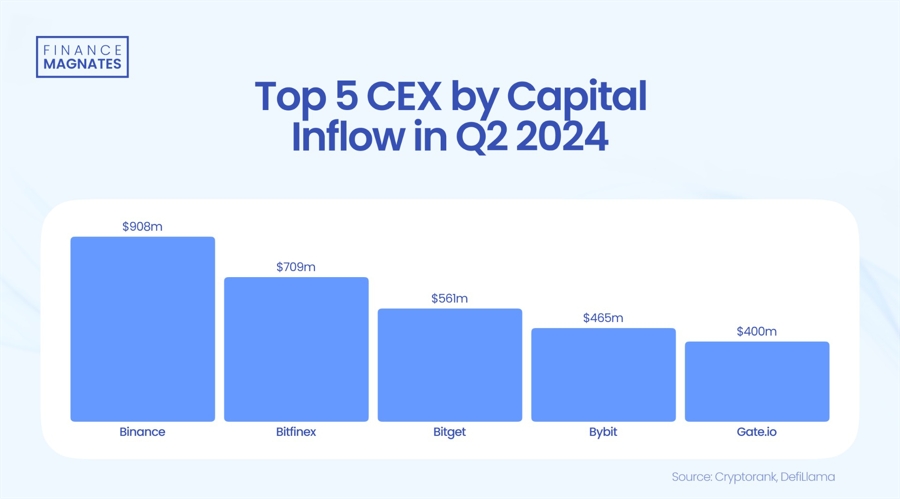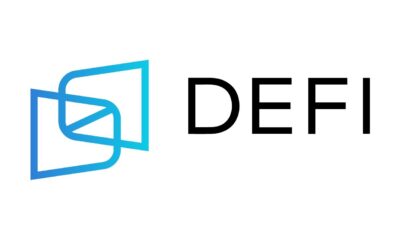News
Fatemeh Fannizadeh on Crypto Law, Switzerland and How KYC Is Failing

Fatemeh Fannizadeh, a lawyer specializing in the crypto industry at Geneva Legal, knows personally how the long arm of the U.S. financial laws can often sweep up innocent individuals. Born in Iran, raised in Switzerland, and now a resident of New York City, Fannizadeh said she has sometimes run into problems with banks and other financial institutions simply because of her name.
“The question of sanctions is something I grew up with,” Fannizadeh, who will be speaking at the Consensus 2024 conference in Austin, Texas later this month, told CoinDesk in an interview. “My name is Iranian, so I sometimes run into issues with financial institutions because my name flags in their system and so on.”
Consensus 2024 will take place in Austin, Texas from May 29 – May 31. Get your tickets here.
Apart from the inconvenience this causes to her personally, the topic of financial surveillance – often rolled out in the name of safety and to mitigate crimes like money laundering and terrorist financing – is something Fannizadeh thinks is actually a net negative for the world. Tracking nearly all financial flows is simply “inefficient,” she said.
Not only that, the rich and powerful who need to find a way around the law are often sophisticated enough to do just that. And so modern finance is in a state where everyone’s personal privacy is sacrificed — and for what? “Privacy is a right. It’s unfortunate that we have to actually really fight for it nowadays, because technology is so overpowering,” she said.
“My hope is that DeFi, in conjunction with privacy technology, will come up with innovative solutions that would be more inclusive to good actors and more exclusive to bad actors than the current system,” Fannizadeh said.
CoinDesk caught up with Fannizadeh to talk about the state of crypto law (and why it’s now impossible to keep up with the regulatory changes), why Switzerland is losing its status as a crypto hub (and how it may bounce back) and what she’s most looking forward to at Consensus, now just a few weeks away.
Do you still think that Switzerland is a crypto hub?
It depends on how you define a crypto hub. I still think that there are good reasons to base a project out of Switzerland. But I would say that the Swiss authorities were previously more welcoming to crypto and that has changed since the ICO [initial coin offering] boom, when a lot of projects were established out of Crypto Valley. It’s not as attractive as before, but then again a lot of places are not as attractive as they once were.
Why do you think that is?
In general, we are seeing more and more regulation in the space. Whether a jurisdiction is welcoming depends on many factors, whether we are talking about a token lunch, where the project fits within the blockchain ecosystem, if and how it is permissioned or fully decentralized, etc. ? Depending on the needs of the project, the regulatory landscape it has to navigate changes a lot. If it’s a privacy project, or there’s no privacy element in it, then again, it changes a lot.
Story continues
See also: Crypto Hubs 2023
I remember when I started doing crypto law, it was way more straightforward. We would advise projects and we would know what to do. Today, I don’t think it’s even possible for a lawyer to be up to date on everything that’s happening anywhere in the world of crypto regulation. And it’s fragmented too.
Do you think one region in particular stands out? Or maybe a handful of regions that are maybe more inviting? I’m thinking of Hong Kong, the United Arab Emirates or maybe the Bahamas.
Each region can be attractive depending on what one wants to do. So if someone is more involved within DeFi or just trading in general, the Emirates is now where a concentration of these projects are. If someone is launching a token nowadays we see that happening more in the islands, like Cayman or the British Virgin Islands.
Before it was easier to just launch a token out of Switzerland. With privacy projects, we know where to avoid, but it is a bit more of a complicated topic — there is no “shoe that fits all.” There are other things to maneuver, like budget restrictions or timeline restrictions where a project may need something done fast or they have a lot of time and budget to have a more sophisticated set up. These are things to consider before we can find a solution that meets their project’s needs and risk profile.
Do you think the tide will change in Switzerland to become more regulatory friendly to crypto or get worse?
That’s a really good question. We see some evolution in Switzerland, especially within the tax realm that makes it more complicated than before to be a crypto project based there. But these are things that one can negotiate or structure around. Switzerland has always been a jurisdiction that had a very neutral and welcoming attitude to finance — particularly within its banking sector. Because it takes the position of being politically neutral,t carries trust from actors to establish there or open a bank account there.
This was historically largely supported by banking secrecy: the fact that banks have to keep their clientbase entirely confidential. Until the early 2000, Swiss banks would never disclose whether they have a relationship with you or how much money you have with them. Everything would remain confidential just as your relationship with your lawyer or doctor or priest is confidential. However, under U.S. pressure this policy of bank secrecy faded away. The U.S. tax administration, especially, wanted to know who had bank accounts there and was eventually not declaring their assets, to replenish their treasury after the 2008-2009 economic crisis. .
So Switzerland, after losing its banking confidentiality, became a less attractive sector for the banking sector. It started opening up a little bit after a few years. Blockchain naturally fits within this narrative of Switzerland being a financial hub, so Switzerland would pursue financial innovation and welcome that sector.
Ueli Maurer, Switzerland’s former finance minister and president, made few statements supporting blockchain innovation withinSwitzerland. Ethereum incorporated in Switzerland — a lot of other important projects went there. There is still this drive for Switzerland to be an attractive financial space that moves from the banking sector to the blockchain sector.
This has to tie in with the Bank Secrecy Act, which seems to me like a blessing and a curse, right? Because you want governments to have the power to go after wealthy individuals that dodge taxes, but the law is so overbroad that it ends up restrictive to businesses and individuals. That’s just my opinion.
I always find it amusing that banking secrecy in Switzerland is the opposite of the Bank Secrecy Act in the U.S, which is about surveillance and KYC, the exact opposite of what banking secrecy means in Switzerland. Surveillance is a social and political issue. I’m usually against surveillance in general and I believe that privacy is a right. It’s unfortunate that we have to actually really fight for it nowadays, because technology is so overpowering and it is only getting worse the more powerful our information technology becomes. I can foresee a form of surveillance that ends in a dystopian future. We need to make sure that we still have and keep control over our data now.
I do understand the arguments that tax evasion is bad and we need to find solutions against it. Obviously I believe that money laundering, terrorism financing and criminal activities are bad. But then I’m wondering whether the current way of tackling these issues, for instance by KYCing everyone, is actually constructive or productive. Did KYC stop money laundering or even lowered it? If you look at the state of the world, I think that the current ways are a very inefficient way to tackle these issues.
See also: If You’re in Crypto, You’re a Criminal
What I usually say is that KYC, which is just gathering information and tracking where money comes from and what it may be used for, is not preventing bad actors. Within the financial sector there are many sophisticated setups that can obfuscate where the money comes from or make it seem like somebody else is in possession of the money so that nothing flags in the KYC. Unfortunately, there are many wealthy and sophisticated bad actors that can do whatever they need to do to launder their money and use it in nefarious ways.
While normal people, people who don’t have this knowledge, they are the ones who are actually harmed by the system. For instance, sanctions regulation, which is the topic of my panel at Consensus, usually targets a whole population based on their nationality or their place of residence. These are just normal people without bad intentions. My hope is that DeFi, in conjunction with privacy technology, will come up with innovative solutions that would be more inclusive to good actors and more exclusive to bad actors than the current system.
That’s a great answer.
It’s my passion and a topic I’ve been thinking a lot about lately. I’m originally from Iran and I lived most of my life in Switzerland. The question of sanctions and their impact is something I grew up with. My name is Iranian, so I sometimes ran into issues with financial institutions because my name flags in their system for example.
That’s bleak. To change this up a little bit, I sometimes talk to lawyers who work in the crypto space who take issue with the term “crypto law” because it’s overbroad. Do you think it’s a term that makes sense?
Interesting. I’m currently writing a chapter for a crypto law book, and the chapter is titled “The Madness of Crypto Law.” The title hints to the fact that crypto law is mad, meaning that there isn’t a common rational understanding of what it means and what it encompasses. It is both a term that makes sense and doesn’t make much sense. As I said before, crypto regulation has become so complex, there’s crypto legal news coming out everyday, it’s almost impossible to follow and map everything.
I also think that there’s an underlying philosophical discussion to this question. What do we mean by crypto law? Are we referring to state regulations relating to or impacting blockchain projects? Or is it relating to the normative realm of blockchain technology, i.e. the law of the code itself?
Well, in the U.S., it has to be the former, right? Even if there aren’t any specific crypto laws, no regulator is willing to consider crypto on its own merits.
There is this meme: “code is law,” meaning there are rules that are hardcoded and will be executed should the necessary preconditions be met, within decentralized, permissionless products or projects.Governance within DAOs, for instance, have their own set of rules. In order to interact with a DAO, one needs to get the token and vote through a certain process. These are all norms and rules. A postulate I have is that the main reason why no country has managed yet to really capture blockchain technology and regulate it in a satisfying manner is because these normative systems of state laws and crypto laws are so different. As if they speak two different languages.
See also: Consensys’ Bill Hughes Talks Crypto Law
One cannot understand crypto with the language of U.S. law or vice versa. Like two puzzles with very different pieces that cannot be put together without an absurd, nonsensical result. And this is actually a feature of blockchain. I cannot blame the regulatory ecosystems for trying to capture it, but I think instead of capturing it, they have to understand that they need to interface with it. It’s a very different approach.
Right. I’m not optimistic about it, to be honest.
You’re not. Why?
More or less everything that you’ve already said, right? They’re not willing to meet the technology on the technology’s terms.
In the U.S.?
Yeah, sorry. I have a very U.S. focus.
I mean, I moved here – it’s great. But seriously, even if I didn’t live here, there is no way to avoid the U.S. in crypto law. It impacts any project, even if the project has no U.S. connections – nobody from the project is from the U.S. or resides there and all U.S. persons are excluded from token purchases, etc.– still, one needs to consider U.S. regulations.
Something to be optimistic about is that even if the U.S. fails in tackling crypto regulations constructively, there are tons of other jurisdictions. These projects live on the internet, so at least for the technology itself, there is a future. Whether this future is US or not, this is a valuable question.
Okay, last question is an easy one. What are you most looking forward to at Consensus?
Many things! It’ll actually be my first time and I’m very excited. We’re almost a month away and I’ve already heard of many interesting events lined up and have meetings organized – I can’t wait to just get together with the attendees, I heard the crowd is excellent. I usually go to very specific community centric or legal and policy conferences. But Consensus is so comprehensive, right? It seems like a platform where we can reach “consensus,” discuss things with very different actors all in one place.
And you tell me, you’ve been. Is there anything I need to keep in mind?
Actually, there’s this programming track called Consensus @ Consensus, which sort of like small breakout groups that focus on very narrow but consequential questions. Those tend to be pretty interesting. I’ve only attended in person twice, and basically work like a dog, but Austin is a fun city in general.
Yeah, that usually happens at conferences.
News
Block Investors Need More to Assess Crypto Unit’s Earnings Potential, Analysts Say — TradingView News

Block, a payments technology company led by Jack Dorsey square could become a formidable player in the cryptocurrency mining industry, but Wall Street will need details on profit margins to gauge the positive impact of the business on earnings, analysts said.
Block signed its first large-scale cryptocurrency mining hardware pact on Wednesday, agreeing to supply its chips to bitcoin miner Core Scientific CORZbut no financial details were disclosed.
JP Morgan estimates the deal could net Block between $225 million and $300 million, but said more information will be needed to assess the hardware business’s long-term earnings potential.
“We still have a lot to learn in terms of the margins of this business, so we are hesitant to underwrite this transaction until we know more about the cadence and economics,” J.P. Morgan said.
The deal marks a major step for the payments company, which started out as “Square” in 2009 before rebranding in 2021 in a nod to its focus on crypto and blockchain technologies.
Dorsey, who co-founded and ran Twitter (now known as “X”), has long been bullish on Bitcoin. Block began investing 10% of its monthly gross profit from Bitcoin products into Bitcoin in April.
In the first quarter, nearly 9% of the company’s cash, cash equivalents, and marketable securities consisted of bitcoin.
“This development (the deal with Core Scientific) is further evidence of Block’s role as an emerging leader in the crypto hardware ecosystem,” Macquarie analysts Paul Golding and Emma Liang wrote in a note.
Analysts say similar deals to follow could further validate Block’s reputation in the industry.
But J.P. Morgan said the stock’s performance will be determined by Block’s other segments, such as Square and Cash App.
Block shares have lost nearly 17% this year.
News
This Thursday’s US Consumer Price Index could be a game-changer for cryptocurrencies!

3:30 PM ▪ 4 minute read ▪ by Luc Jose A.
This Thursday, attention will be focused on the United States with the anticipated release of the Consumer Price Index (CPI). This economic indicator could trigger significant movements in the markets, especially for the U.S. dollar and cryptocurrencies. While investors remain vigilant, speculation is rife about the potential impact of these key figures.
The Consumer Price Index: The Cornerstone of the American Economy
The Consumer Price Index (CPI) is a key measure of inflation which reflects changes in the price of goods and services purchased by American households. This index is calculated monthly by the Bureau of Labor Statistics (BLS) and serves as a barometer for the cost of living. The consumer price index covers a wide range of products, including food, clothing, housing, health care, and entertainment. Economists and policy makers closely monitor this data to anticipate economic trends and adjust monetary policies accordingly.
The June CPI data is due to be released this Thursday at 2:30 p.m., and is highly anticipated by investors. The current consensus is for headline annual inflation to decline to 3.1%, from 3.3% the previous month, while core inflation is expected to remain stable at 3.4%.
THE BIGGEST EVENT THIS WEEK 🚨
The U.S. Consumer Price Index is expected to
PUBLICATION TODAY AT 8:30 AM ET.EXPECTATIONS ARE 3.1% WHILE
LAST MONTH THE CONSUMER PRICE INDEX (CPI) WAS 3.3%HERE ARE SOME SCENARIOS 👇
1) CPI above 3.1%
THIS WILL BE A DAMAGE TO THE MARKET
GIVEN THAT THE LAST TIME THE CPI DATA… photo.twitter.com/yudjPLPl8g— Ash Crypto (@Ashcryptoreal) July 11, 2024
Consumer Price Index Release: What Does It Mean for the Dollar and Bitcoin?
Inflation as measured by the consumer price index is a key determinant of the value of the US dollar. If the consumer price index declines more than expected, it could reinforce expectations of a rate cut by the Federal Reserve in September, thus weakening the dollar. A weaker dollar could benefit GBP/USD, which recently broke a major resistance level, and Bitcoin, which could see its price rise due to increased demand from institutional investors.
Current forecasts suggest that headline inflation will decline to 3.1%, with core inflation holding steady at 3.4%. However, a surprise increase in the consumer price index could upset these expectations. Fed Governor Lisa Cook has mentioned the possibility of a soft landing for the economy, with inflation falling without a significant increase in unemployment, which could lead the Fed to consider rate cuts. This outlook is particularly favorable for stock markets and cryptocurrencies, including Bitcoin, which could benefit from a more accommodative monetary policy.
According to experts at 10x Research, especially their CEO Markus Thielen, Bitcoin could see a significant increase if the CPI data confirms a decline in inflation. Thielen indicated that Bitcoin could reach almost $60,000, a prediction that has already been reflected with a rise to $59,350 before the data was released.
Therefore, Thursday’s CPI data could determine the future direction of financial and cryptocurrency markets. High inflation could strengthen the US Dollarwhile a drop in inflation could pave the way for rate cuts by the Fed, thus giving a boost to Bitcoin and other digital assets.
Enhance your Cointribune experience with our Read to Earn program! Earn points for every article you read and access exclusive rewards. Sign up now and start earning rewards.
Click here to join “Read to Earn” and turn your passion for cryptocurrencies into rewards!
Luke Jose A.
A graduate of Sciences Po Toulouse and holder of a blockchain consultant certification issued by Alyra, I joined the Cointribune adventure in 2019. Convinced of the potential of blockchain to transform many sectors of the economy, I am committed to raising awareness and informing the general public about this ever-evolving ecosystem. My goal is to enable everyone to better understand blockchain and seize the opportunities it offers. Every day, I strive to provide an objective analysis of the news, decipher market trends, convey the latest technological innovations and put into perspective the economic and social issues of this ongoing revolution.
DISCLAIMER
The views, thoughts and opinions expressed in this article are solely those of the author and should not be construed as investment advice. Do your own research before making any investment decisions.
News
Crowd Expects Bitcoin Bounce Suggests Further Losses, As RCO Finance Resists Crash

Bitcoin is seeing a rebound after its recent price crash to $53,000. Other altcoins are subsequently recovering, with many cryptocurrency investors increasingly making new entries. However, Santiment warned against this hopium, suggesting that Bitcoin could extend its price losses.
As the broader market anticipates Bitcoin’s next price action, RCO Finance (RCOF) demonstrates resilience, attracting thousands of people in influxes. Read on for more details!
RCO Finance challenges the market crisis
RCO Finance (RCOF) is approaching $1 million in funding raised, amid growing interest from institutional traders seeking stability from Bitcoin’s wild price swings. While much of the broader market has seen significant price losses, RCO Finance has remained resilient, experiencing a surge in its pre-sale orders.
As a result, the project seems oblivious to the current market conditions, leading top market experts to take a deep dive into its ecosystem. They identified why RCO Finance was able to withstand the bearish pressure and its potential to hold up even stronger during the impending broader market crash.
The main reason was related to the innovative use of RCO Finance AI Trading Tools as a Robo Advisor. This tool has been integrated into RCO Finance’s cryptocurrency trading platform, offering full automation and highly accurate market forecasts to help investors make informed decisions.
Read on to learn more about this tool and other exciting features of RCO Finance!
Bitcoin Bounces Amid Impending Crash
Bitcoin is bouncing back, rallying 8% after plunging to its lowest point since February on July 5. While this rebound has triggered a bullish wave in the broader market, many cryptocurrency analysts predict it could be short-lived as Bitcoin is poised for an imminent crash toward the $50,000 zone.
On a Post X (formerly Twitter)Santiment revealed that while the crowd is anticipating a Bitcoin rally, this potential crash could trigger FUD and panic, causing average traders to wither and give up on Bitcoin. The platform noted that Bitcoin rally has historically occurred after these weak hands sold their holdings.
In particular, these cryptocurrency analysts speculate that the previous and upcoming Bitcoin crash is largely the result of bearish market psychology, as opposed to large BTC sell-offs by the German government and Mt. Gox. In particular, Ki Young Ju, founder and CEO of CryptoQuant, noticed that “the sales were rather negligible, given the overall liquidity of Bitcoin.”
Enjoy seamless investing on RCO Finance
RCO Finance is making investing easier and easier, democratizing access to high-level tools and cryptocurrency earnings that were once reserved for professional and institutional investors. It has also prioritized accessibility, allowing investors of all levels to easily navigate its features through its intuitive interface.
Additionally, they can also maintain anonymity and privacy as the platform has no KYC requirements. To build trust, the platform has instead emphasized regular smart contract audits by respected security firm SolidProof.
Performance data shows massive adoption, indicating that it is doing its job effectively. Investors can also capitalize on RCO Finance’s fast transaction speeds and incredibly low transaction fees, with leverage options up to 1000x to further optimize their portfolios and maximize returns.
Leverage RCO Finance’s pre-sale earnings
An in-depth analysis of the RCO Finance ecosystem revealed that it has strong potential to rival and surpass major cryptocurrencies in the cryptocurrency industry. With a very limited total token supply and excellent tokenomics, RCO Finance is poised to reach its target of $1 billion in market cap upon its official launch.
RCO Finance has adopted a deflationary model, strategic burn mechanisms, and a vesting schedule. However, the project encourages long-term holding by focusing on sustained growth through incredibly high staking rewards.
RCOF tokens are currently available at an altcoin price of $0.01275 in progress Pre-sale Phase 1. This is likely the lowest price these coins will ever trade at, as they are expected to increase exponentially with each new presale phase.
With RCOF expected to be $0.4 at launch, investors jumping in now can expect a Return 30x on their investment!
For more information on RCO Finance (RCOF) presale:
Join the RCO Financial Community
Disclaimer: The statements, views and opinions expressed in this article are solely those of the content provider and do not necessarily represent those of Crypto Reporter. Crypto Reporter is not responsible for the reliability, quality and accuracy of any material in this article. This article is provided for educational purposes only. Crypto Reporter is not responsible or liable, directly or indirectly, for any damage or loss caused or alleged to be caused by or in connection with the use of or reliance on any content, goods or services mentioned in this article. Do your own research and invest at your own risk.
News
Bitget Ranks Third Among Cryptocurrency Exchanges by Capital Inflows in Q2

Although Bitget is not the largest cryptocurrency exchange in terms of total volumes, it closed a favorable quarter. From April to June, the platform ranked third in net capital inflows and showed the strongest growth in market share compared to its competitors.
In the second quarter, investors moved $700 million into Bitget, and activity on the platform increased by nearly 50%.
The exchange has seen a surge in user funds, with Bitcoin (BTC), Tether (USDT), and Ethereum (ETH) rising 73%, 80%, and 153%, respectively, in the first six months of the year. This growth coincided with adding 2.9 million new users to the platform.
This has positioned Bitget among the top exchanges with the highest positive net inflows in the last quarter. Only Binance, which remains the market leader, and Bitfinex have performed better in this category.
According to CCData’s latest H2 Outlook Report, the exchange also recorded the highest market share growth among centralized exchanges, increasing 38.4% from H2 2023 to H1 2024.
Bitget’s spot trading volume has also seen a visible increase, going from $28 billion in Q1 to $32 billion in Q2, marking an increase of over 10%. The platform’s monthly visitors have reached 10 million. Although its volumes are increasing, Bitget still does not rank among the top 10 cryptocurrency exchanges in terms of spot trading.
The changes taking place in the centralized cryptocurrency exchange market show that competition is becoming more and more intenseAn example of this is the recent surge in popularity of Bybit, which has become the second largest exchange in terms of spot trading volumes.
Sports Sponsorships and New Products
Gracy Chen, Source: LinkedIn
Gracy Chen, CEO of Bitget, commented on the quarterly performance, saying, “Q2 2024 was a pivotal period for Bitget. Our collaboration with Turkish athletes, along with significant growth in users and website traffic, is part of our global expansion.”
In an effort to expand its global presence, Bitget has partnered with three Turkish national athletes as part of its #MakeItCount campaign, starring Lionel Messi. The deal with the famous footballer It was signed in Februaryto build brand presence in Latin America.
The exchange also launched a $20 million TON Ecosystem Fund in partnership with Foresight Ventures to support early-stage projects on The Open Network.
The exchange introduced two new initial token listing products, PoolX and Pre-market, which collectively launched over 100 projects. Additionally, Bitget’s native token, BGB, was recognized as the best-performing centralized exchange token in June and was ranked among the top 10 cryptocurrencies by Forbes.
In its latest move, the cryptocurrency exchange aimed to become a regulated player in IndiaThe announcement comes as the world’s most populous democracy grapples with the complexities of integrating cryptocurrencies into its financial ecosystem.
Even recently,
Bitget Wallet Announced a joint investment with cryptocurrency investment firm Foresight X in Tomarket, a decentralized trading platform. This initiative targets emerging asset classes and aims to expand the portfolio’s services beyond traditional decentralized exchanges (DEXs).
Although Bitget is not the largest cryptocurrency exchange in terms of total volumes, it closed a favorable quarter. From April to June, the platform ranked third in net capital inflows and showed the strongest growth in market share compared to its competitors.
In the second quarter, investors moved $700 million into Bitget, and activity on the platform increased by nearly 50%.
The exchange has seen a surge in user funds, with Bitcoin (BTC), Tether (USDT), and Ethereum (ETH) rising 73%, 80%, and 153%, respectively, in the first six months of the year. This growth coincided with adding 2.9 million new users to the platform.
This has positioned Bitget among the top exchanges with the highest positive net inflows in the last quarter. Only Binance, which remains the market leader, and Bitfinex have performed better in this category.
According to CCData’s latest H2 Outlook Report, the exchange also recorded the highest market share growth among centralized exchanges, increasing 38.4% from H2 2023 to H1 2024.
Bitget’s spot trading volume has also seen a visible increase, going from $28 billion in Q1 to $32 billion in Q2, marking an increase of over 10%. The platform’s monthly visitors have reached 10 million. Although its volumes are increasing, Bitget still does not rank among the top 10 cryptocurrency exchanges in terms of spot trading.
The changes taking place in the centralized cryptocurrency exchange market show that competition is becoming increasingly intenseAn example of this is the recent surge in popularity of Bybit, which has become the second largest exchange in terms of spot trading volumes.
Sports Sponsorships and New Products
Gracy Chen, Source: LinkedIn
Gracy Chen, CEO of Bitget, commented on the quarterly performance, saying, “Q2 2024 was a pivotal period for Bitget. Our collaboration with Turkish athletes, along with significant growth in users and website traffic, is part of our global expansion.”
In an effort to expand its global presence, Bitget has partnered with three Turkish national athletes as part of its #MakeItCount campaign, starring Lionel Messi. The deal with the famous footballer It was signed in Februaryto build brand presence in Latin America.
The exchange also launched a $20 million TON Ecosystem Fund in partnership with Foresight Ventures to support early-stage projects on The Open Network.
The exchange introduced two new initial token listing products, PoolX and Pre-market, which collectively launched over 100 projects. Additionally, Bitget’s native token, BGB, was recognized as the best-performing centralized exchange token in June and was ranked among the top 10 cryptocurrencies by Forbes.
In its latest move, the cryptocurrency exchange aimed to become a regulated player in IndiaThe announcement comes as the world’s most populous democracy grapples with the complexities of integrating cryptocurrencies into its financial ecosystem.
Even recently,
Bitget Wallet Announced a joint investment with cryptocurrency investment firm Foresight X in Tomarket, a decentralized trading platform. This initiative targets emerging asset classes and aims to expand the portfolio’s services beyond traditional decentralized exchanges (DEXs).
-

 DeFi10 months ago
DeFi10 months agoDeFi Technologies Appoints Andrew Forson to Board of Directors
-

 Fintech10 months ago
Fintech10 months agoUS Agencies Request Information on Bank-Fintech Dealings
-

 News11 months ago
News11 months agoBlock Investors Need More to Assess Crypto Unit’s Earnings Potential, Analysts Say — TradingView News
-

 DeFi10 months ago
DeFi10 months agoSwitchboard Revolutionizes DeFi with New Oracle Aggregator
-

 DeFi10 months ago
DeFi10 months agoIs Zypto Wallet a Reliable Choice for DeFi Users?
-

 News11 months ago
News11 months agoBitcoin and Technology Correlation Collapses Due to Excess Supply
-

 Fintech10 months ago
Fintech10 months agoWhat changes in financial regulation have impacted the development of financial technology?
-

 Fintech10 months ago
Fintech10 months agoScottish financial technology firm Aveni secures £11m to expand AI offering
-

 Fintech10 months ago
Fintech10 months agoScottish financial technology firm Aveni raises £11m to develop custom AI model for financial services
-

 News1 year ago
News1 year agoValueZone launches new tools to maximize earnings during the ongoing crypto summer
-

 Videos4 months ago
Videos4 months ago“Artificial intelligence is bringing us to a future that we may not survive” – Sco to Whitney Webb’s Waorting!
-

 Markets1 year ago
Markets1 year agoCrypto Expert Provides Analysis of Top Altcoins, Market Sees Slight Rise












